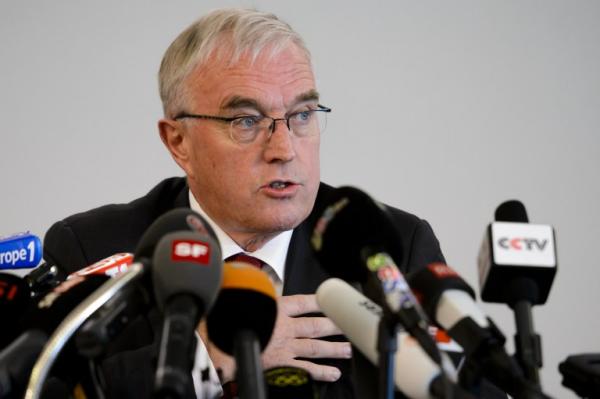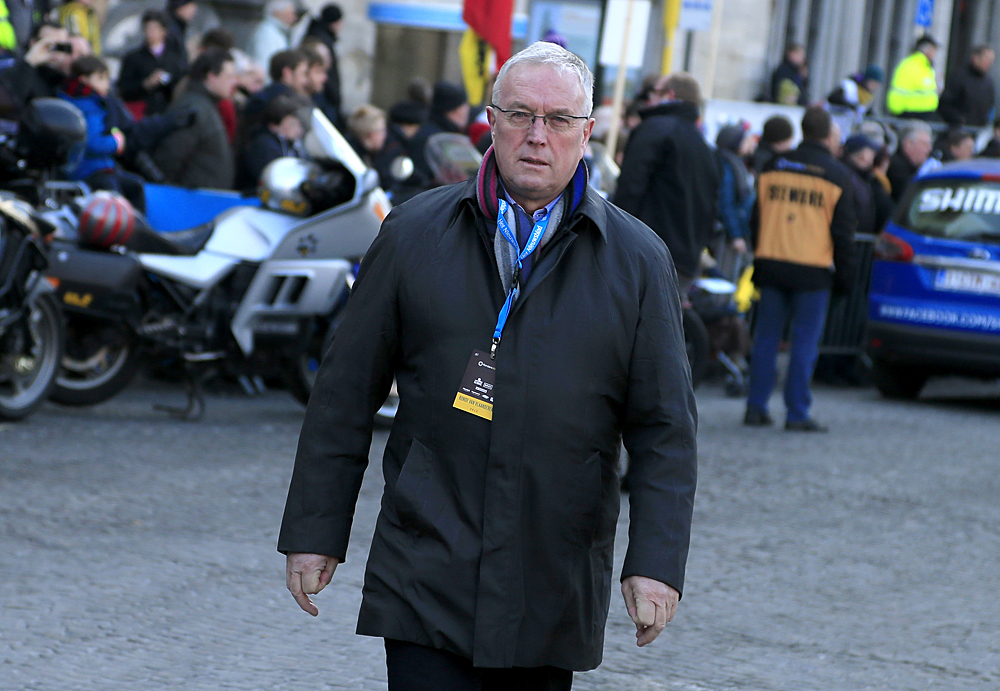McQuaid says Armstrong was a scapegoat
Former UCI president sympathetic to banned rider


Former UCI President Pat McQuaid has told the BBC that he holds sympathy for Lance Armstrong and the American's position as an athlete who has been banned for life.
Armstrong stripped of his seven Tour de France titles and banned by USADA in 2012. At the time McQuaid was still the head of the sport's governing body and told the media that Armstrong had 'no place in cycling'. However the Irishman found himself outside the sport in 2013 when he lost a contentious election for UCI president to Brian Cookson.
"I do have a little sympathy for him. I do agree that what he did to the sport of cycling and how he treated people, as he admits himself, was something that he wouldn't repeat, wouldn't want to repeat if he had s second chance,' McQuaid told the BBC on Tuesday.
McQuaid's comments come after Armstrong himself spoke to BBC. However the Irishman went further, adding that USADA's behaviour during the investigation into US Postal and Armstrong resembled a witch-hunt. During McQuaid's tenure at the UCI he fought USADA over juristction in the case but eventually lost out. He and the UCI faced several allegations of covering up tests and warning riders of suspicious results from former riders.
"Having said that I am very much aware that he was made a scapegoat. That there was a witch-hunt after Armstrong," McQuaid told the BBC.
McQuaid added that USADA treated Armstrong differently than the other riders two confessed to doping and cooperated with the investigation. This point has been argued by both sides, with Armstrong claiming he wasn't offered the same chance to cooperate as the riders who testified against him, and USADA arguing that every rider was treated equally.
"I've said this before. When he quotes the other five or six cyclists who go the phone calls from USADA, and they had federal agents outside with badges and guns, telling them we want you to say this and you've got to say this and you've got to say this, those guys broke down and did it," McQuaid added.
Get The Leadout Newsletter
The latest race content, interviews, features, reviews and expert buying guides, direct to your inbox!
"He didn't get that same phone call. He was just told that you better come in and tell us everthing that you've done. He was treated differently than everybody else and that's the way it was. USADA wanted a big name, the same with guys in the Balco affair. They just wanted a big name to bring down and they weren't really interested in the smaller riders at all."
Ultimately, Armstrong decided not to contest USADA's doping charges and was handed his lifetime ban. Some of those that testified against him were given six month suspensions.
"I can have a certain sympathy because I don't think in sport people should be in those situations. I think that they should be treated equally."
Daniel Benson was the Editor in Chief at Cyclingnews.com between 2008 and 2022. Based in the UK, he joined the Cyclingnews team in 2008 as the site's first UK-based Managing Editor. In that time, he reported on over a dozen editions of the Tour de France, several World Championships, the Tour Down Under, Spring Classics, and the London 2012 Olympic Games. With the help of the excellent editorial team, he ran the coverage on Cyclingnews and has interviewed leading figures in the sport including UCI Presidents and Tour de France winners.
